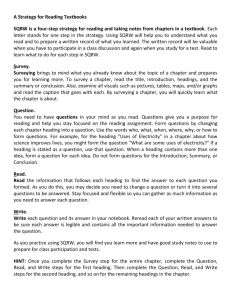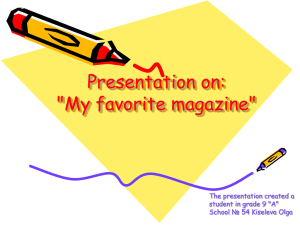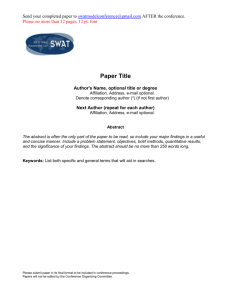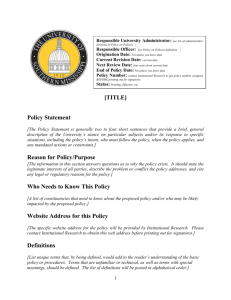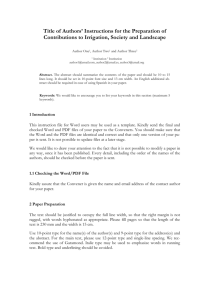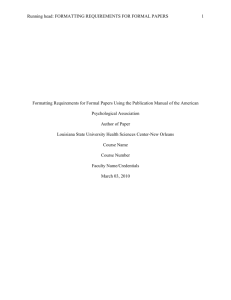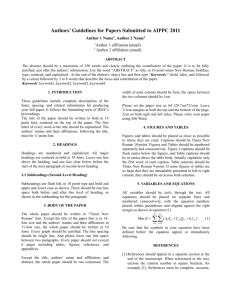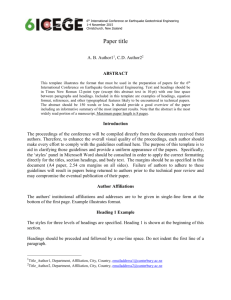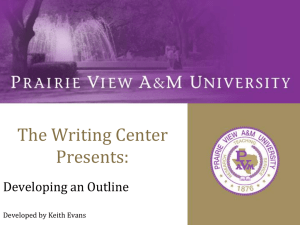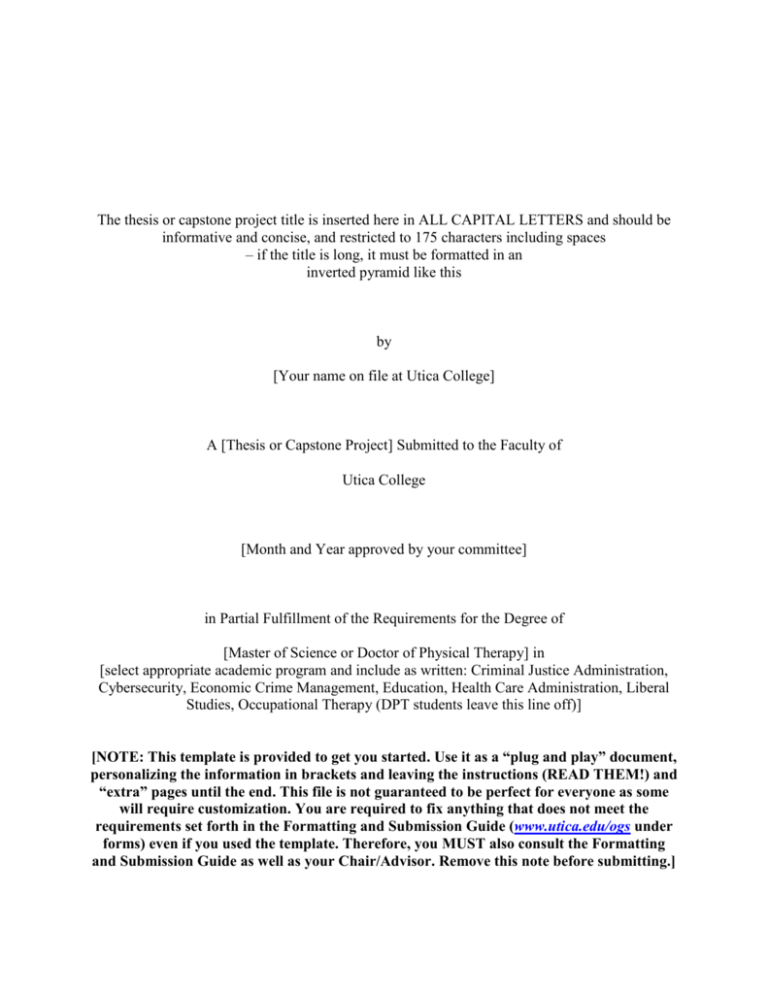
The thesis or capstone project title is inserted here in ALL CAPITAL LETTERS and should be
informative and concise, and restricted to 175 characters including spaces
– if the title is long, it must be formatted in an
inverted pyramid like this
by
[Your name on file at Utica College]
A [Thesis or Capstone Project] Submitted to the Faculty of
Utica College
[Month and Year approved by your committee]
in Partial Fulfillment of the Requirements for the Degree of
[Master of Science or Doctor of Physical Therapy] in
[select appropriate academic program and include as written: Criminal Justice Administration,
Cybersecurity, Economic Crime Management, Education, Health Care Administration, Liberal
Studies, Occupational Therapy (DPT students leave this line off)]
[NOTE: This template is provided to get you started. Use it as a “plug and play” document,
personalizing the information in brackets and leaving the instructions (READ THEM!) and
“extra” pages until the end. This file is not guaranteed to be perfect for everyone as some
will require customization. You are required to fix anything that does not meet the
requirements set forth in the Formatting and Submission Guide (www.utica.edu/ogs under
forms) even if you used the template. Therefore, you MUST also consult the Formatting
and Submission Guide as well as your Chair/Advisor. Remove this note before submitting.]
© Copyright [Year] by [Student’s name here]
All Rights Reserved
ii
Abstract
REQUIRED – Start abstract text here. Notes about formatting are included throughout this
template, but you are responsible for ensuring that all requirements included in the Formatting
and Submission Guide are met. Please note that this template is already set up with the correct
margins, paginations, and justifications. Be careful not to delete page breaks or section breaks at
the bottom pages – to see them, click on the ¶ icon at the top of your Word document (stands for
“show all nonprinting characters”). The abstract is a concise summary of the research. It should
describe the purpose, importance, results, and conclusions of the research. The abstract is to be
written in a scholarly manner. The text for the abstract, and throughout the entire document,
needs to be in Times New Roman font, 12-point type face (size), and black, unless otherwise
specified. This text needs to be double-spaced. Pagination began on the Copyright page with
Roman numeral ii; pagination on this page continues sequentially using Roman numerals. Page
numbers must appear centered on the bottom of the page. Margins for the entire document must
be left justification only and one inch on the left, top, right, and bottom. There is no word limit,
but the abstract must not exceed one page in length, including keywords. The last sentence of the
abstract must start with the word “Keywords:” followed by the academic program [select
appropriate academic program and include as written here: Criminal Justice Administration,
Cybersecurity, Economic Crime Management, Education, Health Care Administration, Liberal
Studies, Occupational Therapy, Physical Therapy], thesis/capstone project adviser’s full name,
and up to five additional keywords that are not included anywhere else in the abstract. Example
of last sentence: Keywords: Liberal Studies, Dr. Polly Smith, sociological, anthropological,
social, qualitative, human rights.
iii
Acknowledgments
OPTIONAL – Insert your acknowledgements text here or delete this page, including the page
break at the bottom of the page. The acknowledgments are personal for the student and may
contain appropriate information, written in a professional manner, that the student may wish to
share with the reader. Please note that this information will be on the World Wide Web for any
person in the world to view. There is no word limit, but the acknowledgments must not exceed
one page in length. Any quotes listed in this section need to be cited; however, use of
copyrighted material in this section is discouraged. Pagination began on the Copyright page with
Roman numeral ii; pagination on this page continues sequentially using Roman numerals.
iv
Table of Contents
[REQUIRED – Insert your Table of Contents (TOC) here. The text for the table of contents must
be single-spaced (double-spaced from the page header) in Times New Roman font, 12-point size,
black. The table of contents does not include any pages prior to or including the Table of
Contents page. Consider copying and pasting the sample level heading you need so the correct
formatting is maintained (indention and tab leader/ellipses). The TOC provides a great outline to
your paper as you are writing! Example:]
List of Illustrative Materials............................................................................................... vi
Level One Heading – Section One.......................................................................................1
Level Two Heading........................................................................................................2
Level three heading .....................................................................................................2
Level four heading ...................................................................................................2
Level five heading.................................................................................................2
Level One Heading – Section Two ......................................................................................2
Level Two Heading........................................................................................................2
Level three heading .....................................................................................................2
Level Two Heading........................................................................................................2
Level three heading .....................................................................................................2
Level One Heading – Section Three ....................................................................................2
Level One Heading – Section Four ......................................................................................2
Level One Heading – Section Five ......................................................................................2
References ............................................................................................................................3
Appendices ...........................................................................................................................4
Appendix A – Title ........................................................................................................5
Appendix B – Title.........................................................................................................5
v
List of Illustrative Materials
[OPTIONAL – Insert your List of Illustrative Materials here, if applicable. Illustrative materials
include tables, graphs, charts, figures, photographs, and other illustrations. The term "Table" is
used to designate tabulated data; this includes computer printout sheets. The term "Figure" is
used to designate photographs, half-tone prints, charts, maps, graphs, plates, drawings, diagrams,
and other mainly nonverbal material. The text for the list of illustrative materials must be singlespaced (double-spaced from the page header) in Times New Roman font, 12-point size, black.
Tables and Figures should be listed in chronological order as they appear in the paper. If you do
not have illustrative materials in your thesis or capstone project, remove this page by
backspacing. DO NOT delete the section break at the bottom of this page, or the page number
format will be changed! Example:]
Table 1 – Title ......................................................................................................................2
Figure 2 – Title.....................................................................................................................2
Table 3 – Title ......................................................................................................................2
vi
Section One of Main Body Text
REQUIRED. The main section headings (e.g., “SECTION ONE OF MAIN BODY
TEXT” above) should be Level One Headings based on the style guide you are using. Type must
be Times New Roman font, 12-point size (footnotes or endnotes may be a minimum of 9-point
font), black. Text must be double-spaced; footnotes or endnotes must be single-spaced.
Pagination begins on the first Main Body Text page with Arabic numeral 1. Page numbers must
appear centered on the bottom of the page. Citations and headings must conform to the style
guide approved for use by the discipline in which the student is enrolled. There must be no
floating headers (also called widows and orphans), where a new section heading appears at the
bottom of a page but the paragraph text starts at the top of the next page. Tables, graphs, charts,
figures, photographs, and other illustrations (categorized as illustrative materials) must be clearly
legible with good contrast, fit within the margins, and conform to the approved style guide.
Graphs etc. may be in color if allowed by the discipline-specific style guide, but keep in mind
that they should print with sufficient contrast in grayscale. Graph and chart headings, labels, and
text may be in alternative fonts and sizes.
Please note that this template is already set up with the correct margins, paginations, and
justifications. If you have any questions regarding this template or the formatting and submission
of your thesis/capstone project, please contact Megan Wilson in the Office of Graduate Studies
(OGS) at (315) 792-3335 or mwilson23@utica.edu. Megan is also willing to review your final
version before submission to OGS to ensure formatting requirements have been met; please
include your committee chair’s name when emailing your thesis/capstone project for review.
Examples below are of heading levels based the APA style guide, 6th edition; you must use the
headings outlined in the style guide required by your program of study.
1
Level One Heading
According to the APA style guide, 6th edition, a level one heading is centered, boldface,
and has uppercase and lowercase letters. Different level headings are used to clarify organization
of the paper. Not all levels of headings are needed. A Level One Heading should be the main
sections of the paper (e.g., Introduction, Literature Review, Methodology, Findings, and
Discussion).
Level Two Heading
Level two headings are flush left, boldface, and have both uppercase and lowercase
letters. They relate to the subject matter in the level one paragraph(s).
Level three heading. Level three headings are indented, boldface, lowercase, in-line
with the paragraph, and ending with a period. They are related to subject matter in the level two
paragraph(s).
Level four heading. Level four headings are indented, boldface, italicized, lowercase, inline with the paragraph, and ending with a period. They are related to subject matter in the level
three paragraph(s).
Level five heading. Level five headings are indented, italicized, lowercase, in-line with
the paragraph, and ending with a period. They are related to subject matter in the level four
paragraph(s).
2
References
[REQUIRED – Insert your References here; only include references for works cited within the
document. Format depends on your academic program’s approved style guide.]
3
Appendix or Appendices
[OPTIONAL – Insert your appendices here. Either the word Appendix or Appendices is used in
the header, depending on how many appendices are included. Pagination began on the Main
Body Text page with Arabic numeral 1; pagination on this page continues sequentially using
Arabic numerals.]
4
Appendix A – Title
[An appendix is used to provide additional information that would be either distracting for the
reader or inappropriate if it were in the main body of the text. Common types of appendixes
include but are not limited to a large table, a word list, the informed consent form, a
mathematical proof, a computer program that is new or unique to the research referred to in the
paper, verbatim instructions to participants, original scales or questionnaires, and raw data. An
appendix should be used only if it helps the reader understand and or evaluate the paper. Each
appendix is listed with an alpha subheading (e.g., Appendix A, Appendix B, Appendix C).]
5

